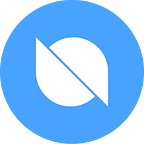Elaborating on the Ontology Roadmaps
Aristotle 2020: the “Next-Generation Internet”
The internet is the great infrastructure of our time. It has deeply supported and influenced our personal lives, businesses, and other aspects of our lives. We at Ontology think that it would hard to create an alternative to the internet in the next few years. The plan for the “next-generation internet” is to use blockchain technology to enhance/improve upon some of the pain points of the internet.
The internet has provided us with an abundance of information and several ways to discover it, but addressing the pain points of the internet lie in filtering, identifying, and verifying information while ensuring privacy protection and safe handling of personal data. Each of these have continued to become more urgent needs for the internet.
Ontology hopes to establish a “blockchain trust zone” within the internet based on Ontology’s blockchain network and trust collaboration platform. In this area people can carry out fast and automated identification and verification of all types of people, assets, things, affairs, information, and services. As a trusted area of the internet, it will also provide technical support for privacy protection and safe handling of personal data. Regardless of its coverage in the first phase, the zone will provide valuable support for specific scenarios and be the first step in the development of the next generation of the internet.
In the future governments, businesses, organizations, and communities from across the world will be able to participate in the development of the next-generation internet using this model. Each entity can establish their own distributed trust chain network system like Ontology’s and interact with each other through a collaborative protocol group. Together, this will create an extensive distributed trust network. In that network there will also be applications such as search engines and social media platforms, which will help us quickly identify and verify what is true, what is false, what is good, and what is bad.
This is how the “trust internet” can gradually develop. Even if the initial stage is only in a small region or industry, it will still serve its own role and contribute to the gradual development of the entire internet.
The Separation of the Public Chain Network and Distributed Trust Platform
The Ontology projects have two strategic lines: one is a new generation high-performance public chain and chain network system, and the other is a distributed trust collaboration platform and trust ecosystem. Therefore, there are two sets of project considerations to be made.
The reason why we designed it this way is because we realized Ontology has two roles. Blockchain does solve the problem of trust, but this underlying layer alone cannot satisfy the needs of all participating entities. At that stage a product would only be half complete. Several common modules providing various types of distributed trust services are needed to support real business scenarios, such as a distributed identity framework, distributed data exchange protocol, distributed reputation and evaluation system, distributed community framework, and so on.
Only when these two components are integrated together can we have a distributed collaboration platform that can support real businesses. Throughout this process we must uphold the importance of technical specialization; the Ontology team are currently separated into distinct groups focusing on different directions, fields, and modules. For the developer community, when we list out large strategic plans, individuals or groups can choose fields/modules they feel they are good at and develop services and applications for the ecosystem. Using this process professional teams or smaller groups can contribute to a larger strategy and maintain direction.
Project implementation and promotion
Whereas there is a clear strategic plan for the project, we do not want to adopt a centralized development approach. Although each core layer and each module have their own unique role, they can be applied to different scenarios. Each version release can support a new application scenario, allowing for an agile rapid iterative development process.
Each stage introduces a usable version for certain fields. In each quarter, Ontology will perform function upgrades, expand the application scope of the entire platform, and gradually improve in engineering design, upgrade coordination, quality control, and other issues. However, from the development experience of the internet, the traditional waterfall development model is no longer appropriate. Blockchain’s future is continuously changing, so the best practice for each scenario is to be in a continuous exploration process. This is where agile rapid iteration development comes in, as it allows for new features and enhancements to be continuously introduced. This will ensure the overall performance and coverage of the platform.
Both Ontology’s core team and all technical community partners will be involved in the process of agile rapid iterative development. Together everyone will work towards the large strategic direction, combining their own ideas and respective backgrounds and experience. Constantly exploring the integration of distributed trust applications into different industries will be an important aspect of the public chain community project.
At present, the Ontology team has completed the first version of the core high-performance public chain and modularized blockchain framework. We have also completed important basic modules such as the distributed identity framework and distributed data exchange protocol for the distributed trust platform. We will launch MainNet in accordance with the progress of TestNet, and then begin to cooperate with the technical community and continue to promote agile rapid iterative development. Ontology will have its functionality upgraded during each development cycle, which will ensure that each upgrade can be used as a complete stand-alone product that can be applied to different fields, with each upgrade including a usable blockchain function.
The Ontology Team
Are you a developer? Make sure you have joined our tech community on Discord. Also, take a look at the Developer Center on our website, there you can find developer tools, documentation, and more.
Find Ontology elsewhere
Ontology website / Ontology GitHub / ONTO website / OWallet (GitHub)
